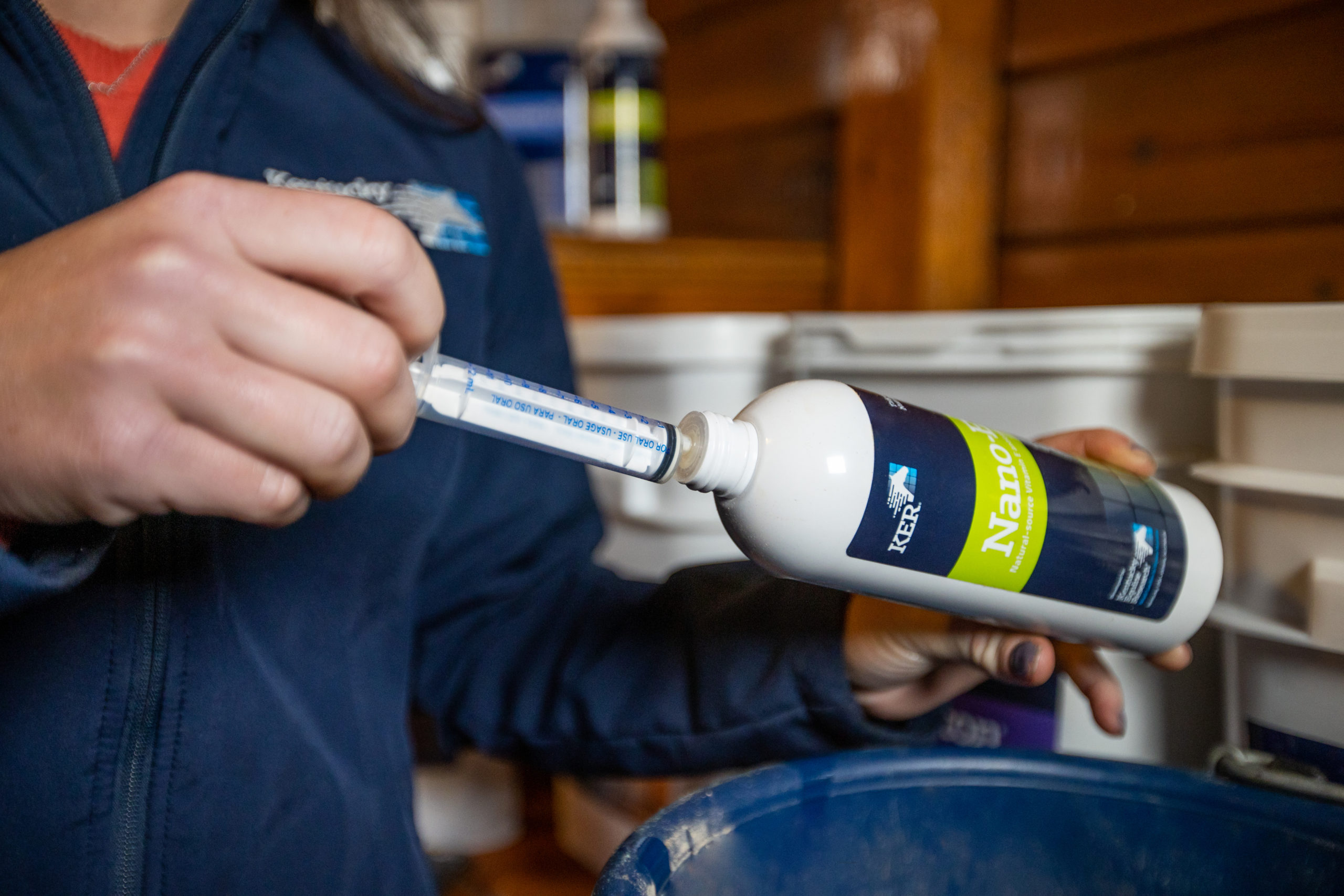Let’s face it: Vitamin E isn’t usually the first thing that springs to mind when considering supplements for performance horses.
Yet this plant-derived antioxidant often touted as a “youthening” agent in human products—is also critically important for equines in work.
And here’s the thing: Where and how your horse gets it matters more than you might realize.
Muscle Matters
Vitamin E functions as a primary antioxidant in horses—but what exactly does that mean?
According to equine nutritionist Katie Young, Ph.D., oxidation is a part of the normal metabolic process “… in which horses utilize dietary nutrients to produce the energy used for all functions—maintenance, performance, growth and reproduction.” However, a natural byproduct of oxidation are free radicals, which are compounds that can damage cells if left unchecked. Without adequate reserves of natural antioxidants, working horses may suffer increased muscle soreness or stiffness after exercise, not to mention prolonged recovery times. (And who wants that?)
Fortunately, antioxidants can help reduce free radicals in exercising horses. This is especially true of Vitamin E. As Young explained, it “plays an important role in nerve and muscle function, working as part of the nonenzymatic defense system of the body.” Therefore, it stands to reason that your horse needs Vitamin E in sufficient amounts to sustain normal muscle function and help ward off muscle problems.
“But I have fresh, green pasture!” you might say. “Isn’t that enough?” While Vitamin E is indeed abundant in lush forage, most working horses don’t have 24/7 access to it. Even for field-kept individuals, pasture quality varies considerably by location, season and other factors. Not surprisingly, Vitamin E activity is even more unstable in hay.

A Question of Bioavailability
Oral supplements to the rescue? Maybe. Many oral supplements contain Vitamin E, but your horse’s ability to benefit from this vital antioxidant depends in part on the bioavailability of its source. As Young explained, “Bioavailability refers to the extent an ingested nutrient in a particular source is absorbed from the digestive tract in a form that can be utilized in metabolism by the animal.” Unfortunately, most commercial horse feeds and supplements contain powdered synthetic vitamin E, which Young described as a mixture of vitamin isomers, “some of which are more bioavailable than others.”
However, natural Vitamin E contains what she called the “most biologically active” type of that vitamin, d-alpha-tocopherol. In addition, research suggests that natural Vitamin E is better at minimizing oxidative and muscle cell damage in exercising horses than its synthetic counterpart.
The form in which the Vitamin E is delivered matters, too. For the fastest serum concentration (meaning therapeutically active levels in the blood), research reportedly favors a water-dispersible, natural form over the powdered form. As every competitor knows, fast delivery could make a difference leading up to a stressful event.
Amounts Count
Then there’s the matter of how much Vitamin E your active horse needs.
While further studies on working horses are needed, the current National Research Council’s recommendations to meet daily minimum maintenance requirements are 500 IU of Vitamin E per day for an 1,100 lb (500 kg) horse, and 800-1000 IU per day for a working horse. From additional sources*, vitamin E recommendations include supplementing 3,000-5,000 IU per 1,100 lb (500 kg) horse six to 12 hours prior to competition or a stressful event, 5,000 IU/day to support horses diagnosed with EPM, and 2,000-3,000 IU/day for horses with muscle myopathies.
It’s worth noting, however, that NRC recommendations don’t distinguish between natural and synthetic sources of Vitamin E. Adding to the confusion is the fact that the vitamin is listed in different ways on feed and supplement labels, making it hard to determine what’s naturally sourced and what isn’t. Then, too, the amounts of Vitamin E in commercial feeds are varied, and “rarely in quantities that will meet a horse’s total requirement alone, especially for working horses,” Young asserted.
So when it comes to equines and Vitamin E, consider all these factors, do your homework and ask questions of the manufacturers. Your horse is counting on you!
*Additional sources include: Kentucky Equine Research, publications authored by Dr. Stephanie Valberg, and Geor, Harris and Coenen Equine Applied and Clinical Nutrition
This article is brought to you by:









